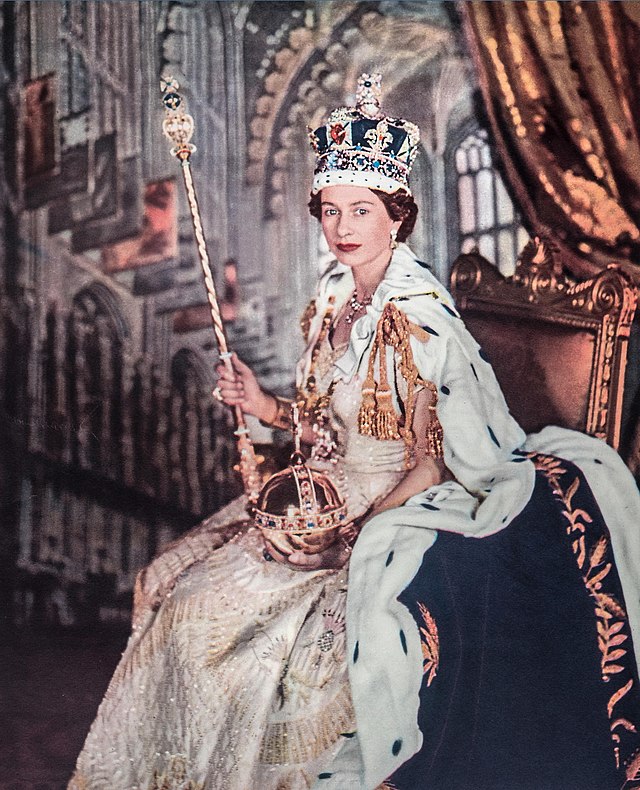Death of Queen Elizabeth II
November 7, 2022
Queen Elizabeth II, Queen of the United Kingdom and several other Commonwealth realms died on September 8th, 2022, after 70 years and 214 days on the throne, and was succeeded by her son, King Charles III. The official cause of death given was old age. She was the longest reigning British monarch, serving for 6 years longer than previous record holder Queen Victoria, longest reigning female monarch, and second longest reigning Sovereign after Louis XIV of France, who reigned for 72 years and 110 days. Her State Funeral was held on September 19th, after several days of mourning.
Elizabeth II, born in 1926, was originally not expected to become monarch, but when her uncle Edward VIII abdicated the throne in 1936 so he could marry a twice-divorced American woman amid controversy, her father, George VI became king. Elizabeth would then become Queen upon his death in 1952. Her reign spanned 15 Prime Ministers of the United Kingdom from Winston Churchill to Liz Truss, who she appointed just 2 days before her death, and who would resign just a month later, being the shortest serving UK Prime Minister. Elizabeth’s reign also saw the decolonization of most British colonies, the height and end of the Cold War, conflict in Northern Ireland, and was the first monarch to open a session of the Canadian Parliament and to hold a state visit to China.
The Queen also remained a popular symbol despite Republican sentiment occasionally growing, and turmoil such as the aforementioned conflicts in Northern Ireland, known as The Troubles, the death of Princess Diana, and other scandals surrounding her son, the future King Charles III. A referendum in 1999 to turn Australia into a Republic failed as a result of her popularity, although some countries like Fiji and Barbados would abolish the monarchy under her reign.
Her successor, Charles III is expected to “slim down” the monarchy in order to save money. For example, his son Prince William, who became the Prince of Wales upon Elizabeth’s death, is expected to not have an investiture, unlike previous Princes of Wales. Charles III’s coronation ceremony will also be a lot smaller than Elizabeth II’s coronation in 1952. There will be only 2,000 attendees instead of the 8,000 that attended the previous monarch’s coronation for “health and safety” reasons, and it’s alleged – though not confirmed – that members of the British peerage will be allowed to wear morning suits instead of their regalia. Although Charles III has said that he wants to make his coronation ceremony more friendly to other religions as to better represent the more multicultural Britain, he will still be anointed “defender of the faith” despite speculation that he would be anointed “defender of faiths” instead in order to be more inclusive.
Despite many controversial opinions on Queen Elizabeth II, she was undoubtedly a popular monarch in the UK and other Commonwealth nations, and her legacy will certainly have notable effects in the decades to come, while Charles III will also have a big effect by reshaping the ancient institution of the monarchy into something more modern.



realina • Nov 8, 2022 at 10:33 am
im still like disappointed and stuff because noone wanted the queen to die